Faces of Open Government: The Open Gov Youth Collective
Rostros del gobierno abierto: Open Gov Youth Collective
In celebration of International Youth Day, we sat down with five open government champions from the Open Gov Youth Collective to hear about why engaging youthRecognizing that investing in youth means investing in a better future, OGP participating governments are creating meaningful opportunities for youth to participate in government processes. Technical ... More in open government work is critical for moving the needle towards more transparent, accountable and participatory governance.
- Shaneel Lal lives in New Zealand and advocates for youth, indigenous, and LGBTQIA+Increasing opportunities for participation and creating accountability mechanisms for the LGBTQIA+ community in policy-making and service delivery can ensure that their voices are heard and changes ar... rights. You can find Shaneel on Instagram and Twitter at @shaneellall.
- Chaimae Bourjij lives in Morocco and advocates for genderOGP participating governments are bringing gender perspectives to popular policy areas, ensuring diversity in participatory processes, and specifically targeting gender gaps in policies to address gov... More equality and inclusionOGP participating governments are working to create governments that truly serve all people. Commitments in this area may address persons with disabilities, women and girls, lesbian, gay, bisexual, tr... More of marginalized communities. You can find Chaimae on Twitter at @chaimae_bj.
- Bature Emmanuel lives in Nigeria and advocates for citizen participationAccording to OGP’s Articles of Governance, citizen participation occurs when “governments seek to mobilize citizens to engage in public debate, provide input, and make contributions that lead to m... More and technology innovation. You can find Bature on Twitter at @EDBature.
- Francis Ametepey lives in Ghana and advocates for a variety of issues, including open parliaments. You can find Francis on Instagram and Twitter at @ametepeyfrancis.
- Katie Fuhs lives in the United States and supports Accountability Lab’s programming around accountability, transparencyAccording to OGP’s Articles of Governance, transparency occurs when “government-held information (including on activities and decisions) is open, comprehensive, timely, freely available to the pub... More, youth engagement and citizen participation.
Why do you think it’s critical for youth to be actively involved in the open government community?
Francis: I think youth inclusivity in open government is not just critical but relevant and pivotal to a well-functioning democracy across the world. It’s time the world acknowledges the power of 1.8 billion young people in building their own future. A future we can be proud of and take ownership of at all times. The active involvement of youth will lead to more equitable, sustainable public decisions and improve policy shifts globally. Open government communities need to establish partnerships that deepen meaningful and inclusive community engagement.
Katie: Around the world, young people feel that government establishments and institutions are not listening to them, which leads them towards efforts to create change outside these systems – peacefully, violently, or somewhere in between. If the open government community wants the buy-in of young people – or, in other words, the next generation of politicians, civil society leaders, and civil servants – they will have to intentionally and meaningfully include young people before they reach those positions of power.
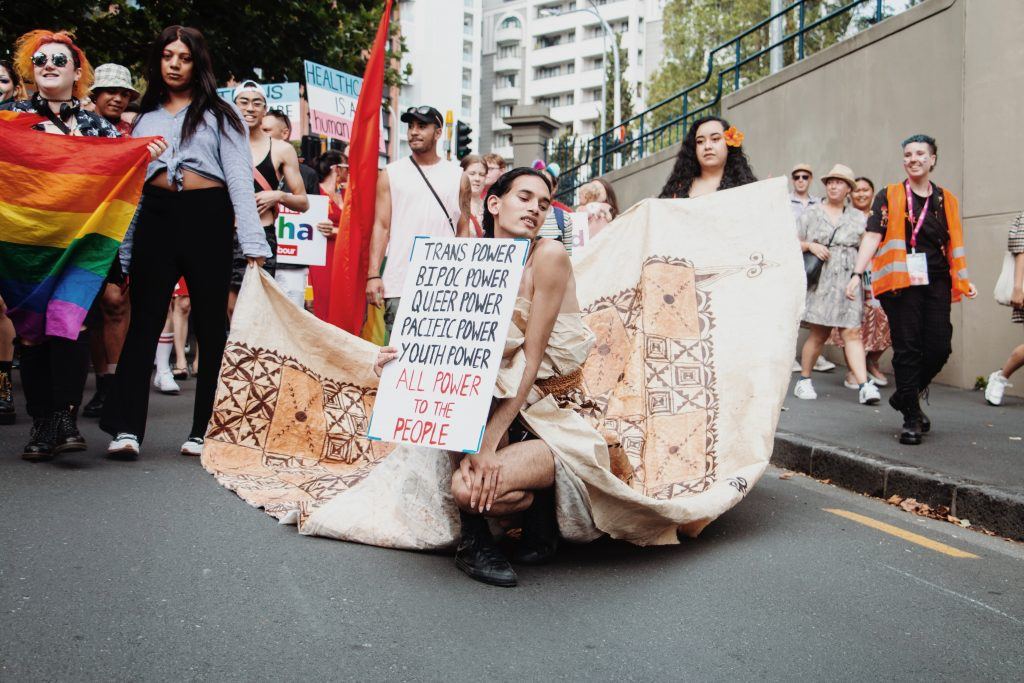
Shaneel Lal, a youth, indigenous and LGBTQIA+ rights activist, based in New ZealandPHOTO: Source: Shaneel Lal
What’s the area of open government you’re most passionate about? How are you engaged in advancing that work?
Shaneel: When I enter spaces of decision- making, I am aware that I represent many groups of people that have been historically excluded from these spaces. I recognise that being a young Pacific trans immigrant puts me at the bottom of the social hierarchy, but I’m mindful that there are people more marginalised than me. While I advocate for my people, I am committed to doing right by those less privileged than me.
I don’t think having privileges is anyone’s fault, but I do believe that it is our responsibility to use our privileges to end systems that give us privileges in the first place. Countries who’ve benefited from colonisation ought to be committed to decolonising and making effective colonial reparations. While many colonial laws are a thing of the past, those laws have shaped society to give the inheritors of the colonial tradition an advantage. International law has failed countries recovering from colonisation. Genuine allyship requires wealthy countries who’ve benefited from colonisation to put themselves in positions to lose their privilege.
Chaimae: I am motivated by the dream of youth inclusion, driven by the leaders before me, empowered by the chance to influence. I have led several initiatives in Morocco, especially targeting youth with the aim to empower them and incubate their launch of local, regional and national initiatives around the SDGs (gender equality, quality educationAccountability within the public education system is key to improving outcomes and attainment, and accountability is nearly impossible without transparent policies and opportunities for participation ... and decent work, and economic growth). My aim has always been to foster their creativity by tapping the reservoir of talent they hold and recognizing their ability to change while creating platforms to allow so.
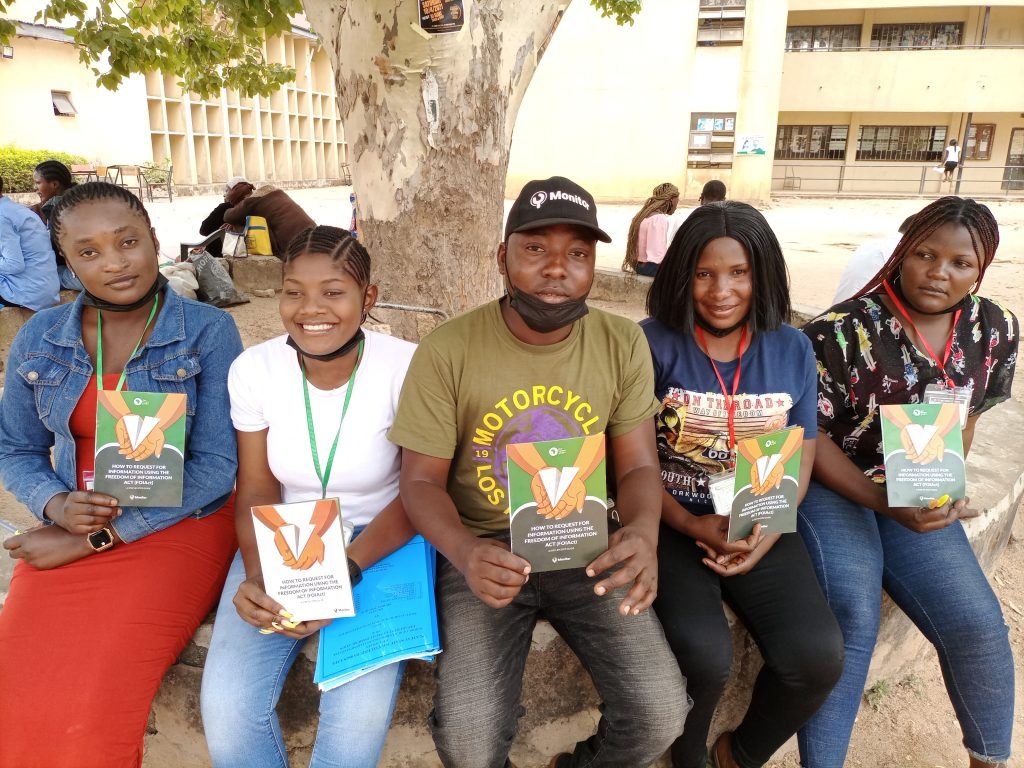
Bature Emmanuel, an advocate for youth and freedom of information, based in NigeriaPHOTO: Source: Bature Emmanuel, YMonitor
Bature: I am most passionate about citizens participation and technology innovation., My journey in this work has been awesome. I am an ambassador of the Freedom of Information (FOI) Act with Ymonitor, and I have successfully distributed 300 hundred copies of the FOI Act guidelines to citizens across Plateau State, Nigeria. I have launched an initiative known as Citizen Inspect, and I am currently working on IT digital technology to facilitate citizen participation on demand for transparency and accountability.
Francis: For us at Youth Advocates Ghana, we believe in creating platforms for young people to engage, dialogue, and hold duty bearers to account to the people they serve. We do this through our continental African Youth SDGs Summit, the largest gathering space for dialogue, networking, learning and celebration of successes and participation of young people implementing the UN 2030 Agenda for Sustainable Development and the African Union Agenda 2063. This has helped both young people and policy makers to team up to redefine policies and provide young people the platform to declare their readiness to partner with leaders to drive the implementation of the SDGs.
It’s been over two years since the Open Gov Youth Collective was formed. What have you learned from your peers? How have you been able to leverage this network to amplify your work?
Francis: The Open Gov Youth Collective has created a safe space for young people from across the globe that are passionate about open government and youth participation to meet, learn and share ideas on how to be change agents in their respective countries. In 2020, the Collective conducted a global survey to explore how young people perceive parliament and youth participation in parliamentary activities. A staggering 96 percent of respondents indicated strongly that political structures, norms and rules, including the monetisation of electoral processes, have become a huge barrier to youth participation in politics. These discourage young people and don’t give them the room or opportunity to run for public office, including parliament. Currently, I am using the policy recommendations from the research to engage and influence policy makers at the national and regional level for better inclusion of young people in decision making.
Katie: Accountability Lab – where I work – is one of the organizations that originally brought together and supported the Open Gov Youth Collective. We have used the network to demonstrate to the open government community that youth are already working in the space – educating other young people, campaigning for public policy changes, and implementing their own initiatives. Earlier this year, we brought a number of youth activists from Peru to the Philippines to share their work with the newest OGP Local cohort as an inspiration to consider youth as they designed their first co-creation processes. The members of the Open Gov Youth Collective show that youth are already here, doing the work, which allows us to focus more on how to include youth rather than why we should include youth.
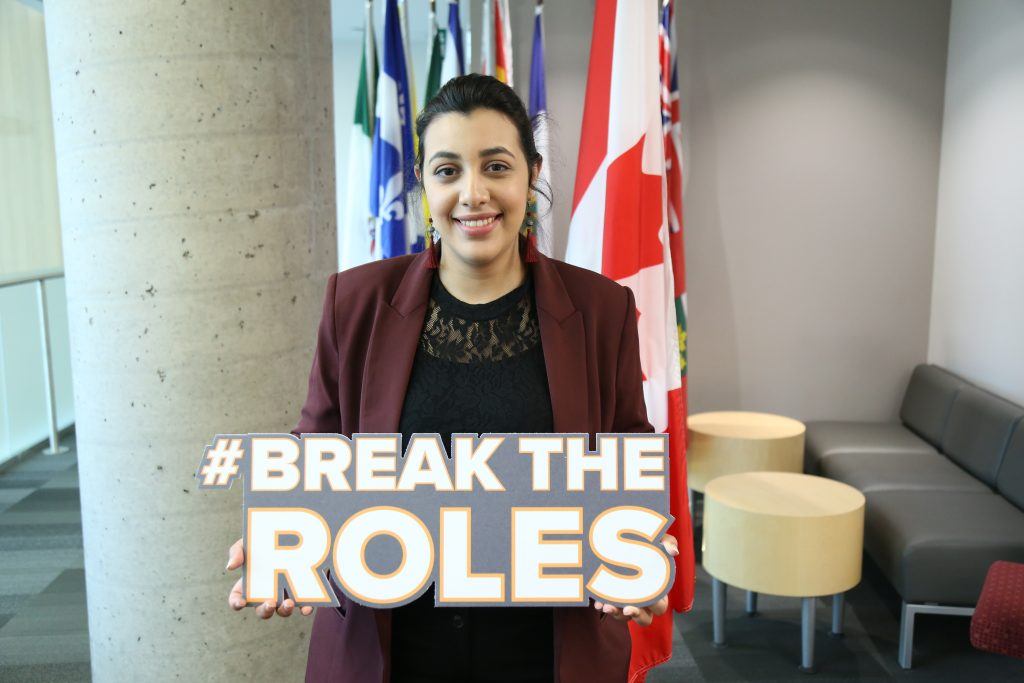
Chaimae Bourjij, a youth advocate from Morocco, at the 2019 OGP Global Summit in Ottawa, CanadaPHOTO: Credit: OGP
Chaimae: The Open Gov Youth Collective has definitely been a once in a lifetime experience to go from ideation to action in a matter of days. We have since led several national activities gathered in the youth collective report of 2020 and organized the Open Gov Youth Digital summit that mobilized over 500 youth from around the world. Currently, we continue to lead change through open parliamentEnsuring access to legislative information and creating mechanisms for public participation are critical to building an open, trusting relationship with citizens. Technical specifications: Commitments... More conversations, open dataBy opening up data and making it sharable and reusable, governments can enable informed debate, better decision making, and the development of innovative new services. Technical specifications: Polici... days and toolkits on youth inclusion. This opportunity has helped me visualize the power of youth’s global cooperation but mostly leverage my network not only globally but sometimes nationally as well.
En el marco de la celebración del Día Internacional de la Juventud, platicamos con cinco líderes de gobierno abierto del Open Gov Youth Collective (Colectivo de jóvenes por el gobierno abierto) para entender por qué involucrar a los jóvenes en el trabajo de gobierno abierto es fundamental para la gobernanza transparente, responsable y participativa.
- Shaneel Lal vive en Nueva Zelanda y es impulsor de los derechos de los jóvenes, indígenas y grupos LGBTQIA+. Puedes encontrar a Shaneel en Instagram y en Twitter como @shaneellall
- Chaimae Bourjij vive en Marruecos y es promotor de la equidad de género e inclusión de las comunidades marginadas. Encuentra a Chaimae en Twitter como @chaimae_bj
- Bature Emmanuel vive en Nigeria y promueve la participación ciudadana y la innovación tecnológica. Encuentra a Bature en Twitter como @EDBature
- Francis Ametepey vive en Ghana y trabaja en diversos temas, incluyendo los parlamentos abiertos. Encuentra a Francis en Instagram y en Twitter como @ametepeyfrancis
- Katie Fuhs vive en Estados Unidos y apoya el programa de Accountability Lab sobre rendición de cuentas, transparencia, vinculación con jóvenes y participación ciudadana.
¿Por qué crees que es fundamental que los jóvenes participen activamente en la comunidad de gobierno abierto?
Francis: Creo que la inclusión de los jóvenes en el gobierno abierto no solo es fundamental, sino también relevante y central para el funcionamiento de la democracia en todo el mundo. Ya es tiempo que el mundo reconozca el poder que los 1.8 miles de millones de jóvenes tienen por construir su propio futuro. La participación activa de los jóvenes llevará a decisiones más equitativas y sustentables, mejorando las políticas de todo el mundo. Las comunidades de gobierno abierto deben establecer alianzas que promuevan una participación comunitaria y profunda significativa.
Katie: En todo el mundo, los jóvenes sienten que los gobiernos y las instituciones no los están escuchando, lo que los ha llevado a impulsar esfuerzos fuera de los sistemas, ya sea de forma pacífica o violenta. Si la comunidad de gobierno abierto quiere el apoyo de los jóvenes (en otras palabras la siguiente generación de políticos, líderes de la sociedad civil y funcionarios), deben involucrarlos de forma activa antes de que lleguen a estas posiciones de poder.

Shaneel Lal, a youth, indigenous and LGBTQIA+ rights activists, based in New ZealandPHOTO: Source: Shaneel Lal
¿Qué área del gobierno abierto te apasiona más? ¿Cómo trabajas en este tema?
Shaneel: Cuando participo en espacios de toma de decisiones, soy consiente de que represento a muchos grupos que históricamente han sido excluidos de estos espacios. Reconozco que ser un inmigrante joven del Paífico y trans me posiciona en la base de la jerarquía social, pero también sé que hay personas más marginadas que yo. Mientras abogo por mi gente, estoy comprometido con proteger a los que tienen menos privilegio que yo.
No creo que ser privilegiado sea culpa de nadie, pero sí creo que es nuestra responsabilidad utilizar nuestros privilegios y dar fin a los sistemas que nos dan ese privilegio. Los países que se han beneficiado de la colonización deben comprometerse a descolonizar y a promover reparaciones efectivas. Aunque las leyes coloniales son cosa del pasado, las leyes que moldearon a las sociedades dieron una ventaja a los herederos de las tradiciones colonialistas. Las leyes internacionales le han fallado a los países que se están recuperando de la colonización. Las alianzas verdaderas exigen que los países que se han beneficiado de la colonización que ocupen posiciones para perder sus privilegios.
Chaimae: Me motiva el sueño de la inclusión de los jóvenes, con el liderazgo de quienes vinieron antes de mí y empoderada por la posibilidad de hacer una diferencia. He liderado varias iniciativas en Marruecos enfocadas en empoderar a los jóvenes. También he incubado el lanzamiento de iniciativas locales, regionales y nacionales sobre los ODS (equidad de género, educación de calidad, trabajo decente y crecimiento económico). Mi objetivo siempre ha sido fomentar su creatividad, aprovechando su talento y reconociendo su capacidad de promover cambios mientras que las plataformas lo promuevan.

Bature Emmanuel is an advocate for youth and freedom of information based in Nigeria.PHOTO: Source: Bature Emmanuel, YMonitor
Bature: Lo que más me apasiona es la participación ciudadana y la innovación. Mi experiencia ha sido increíble; soy embajador de la ley de libertad de información con Ymonitor y he logrado distribuir 300 copias de las reglas de la ley de acceso a la información a la ciudadanía del estado Plateau en Nigeria. Creé la iniciativa Citizen Inspect y actualmente estoy trabajando en tecnologías digitales para facilitar la participación ciudadana, exigiendo la transparencia y rendición de cuentas.
Francis: En el equipo de Youth Advocates Ghana, creemos en la creación de plataformas que los jóvenes puedan utilizar para participar, dialogar y exigir a los tomadores de decisiones que rindan cuentas. Logramos esto a través de nuestra Cumbre Africana de Jóvenes sobre los ODS, el mayor espacio de jóvenes en el que se discute, se crean redes, se aprenden y se celebran los logros y la participación de los jóvenes en la implementación de la Agenda 2030 para el Desarrollo Sostenible y la Agenda de la Unión Africana 2063. Esto ha ayudado a los jóvenes y a los tomadores de decisiones a trabajar juntos en la definición de políticas y ha dado unos jóvenes una plataforma para declarar su disponibilidad de asociarse con sus líderes para impulsar la implementación de los ODS.
Han pasado dos años desde la creación del Open Gov Youth Collective. ¿Qué has aprendido de tus compañeros? ¿Cómo has aprovechado esta red para amplificar tu trabajo?
Francis: El Open Gov Youth Collective es un espacio que permite a los jóvenes de todo el mundo que tienen una pasión por el gobierno y la participación de los jóvenes reunirse, aprender y compartir ideas sobre cómo ser agentes de cambio en sus países. En 2020, el colectivo llevó a cabo una encuesta global para explorar cómo los jóvenes perciben a los parlamentos y la participación de los jóvenes en las actividades parlamentarias. Increíblemente, el 96 % de los encuestados indicaron que las estructuras políticas, normas y reglas (incluyendo la monetización de los procesos electorales) son una gran barrera para la participación de los jóvenes en la política. Estas barreras evitan que los jóvenes participen y no les dan la oportunidad de presentarse a ocupar cargos políticos, incluyendo los parlamentos. Actualmente, estoy tomando las recomendaciones de política de la investigación, contactando a tomadores de decisiones nacionales y regionales para promover una mayor inclusión de los jóvenes en la toma de decisiones.
Katie: Accountability Lab, en donde trabajo, es una de las primeras organizaciones en convocar y apoyar al Open Gov Youth Collective. Hemos utilizado esta red para demostrar a la comunidad de gobierno abierto que los jóvenes ya están trabajando en este espacio, ya sea capacitando a otros jóvenes, liderando campañas para impulsar cambios de política o implementando sus propias iniciativas. A principios de este año, llevamos a un grupo de jóvenes activistas de Perú a Filipinas para compartir su experiencia con la nueva cohorte de OGP Local como inspiración para involucrar a los jóvenes en el diseño de su primer proceso de cocreación. Los miembros del Open Gov Youth Collective han demostrado que los jóvenes ya están aquí, trabajando, lo que les ha permitido enfocarnos en cómo incluir a los jóvenes y no en por qué incluirlos.

Chaimae Bourjij, a youth advocate from Morocco, at the 2019 OGP Global Summit in Ottawa, CanadaPHOTO: Credit: OGP
Chaimae: El Open Gov Youth Collective definitivamente a sido una experiencia única que pasó de una idea a la acción en cuestión de días. Desde entonces, hemos liderado diversas actividades nacionales que están plasmadas en el informe del colectivo de 2020 y organizamos la cumbre digital de jóvenes para el gobierno abierto en la que participaron más de 500 jóvenes de todo el mundo. Esta oportunidad me ha llevado a visualizar el poder de la cooperación global entre jóvenes, pero sobre todo apalancar mi red no solo global sino también nacional.
No comments yet
Related Content
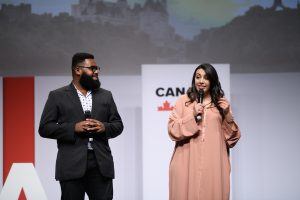
Five Ideas We Heard from 1,000+ Young Open Government Reformers
Read reflections from the Open Gov Digital Youth Summit and how young people are playing a critical role in pushing for a more transparent, fair and equitable response and recovery…
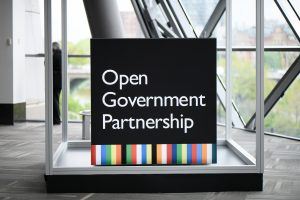
Policy Areas OLD
OGP members work with civil society to determine priority public policy areas. Through the OGP process, members address issues that need reform to make a positive impact in their communities.
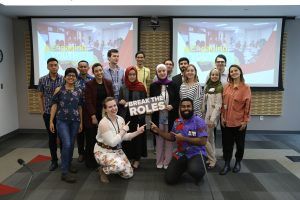 Challenges and Solutions
Challenges and Solutions Youth Power in Open Government
Young people now represent 41% of the global population, yet young people are rarely brought meaningfully into policy processes that affect their lives..


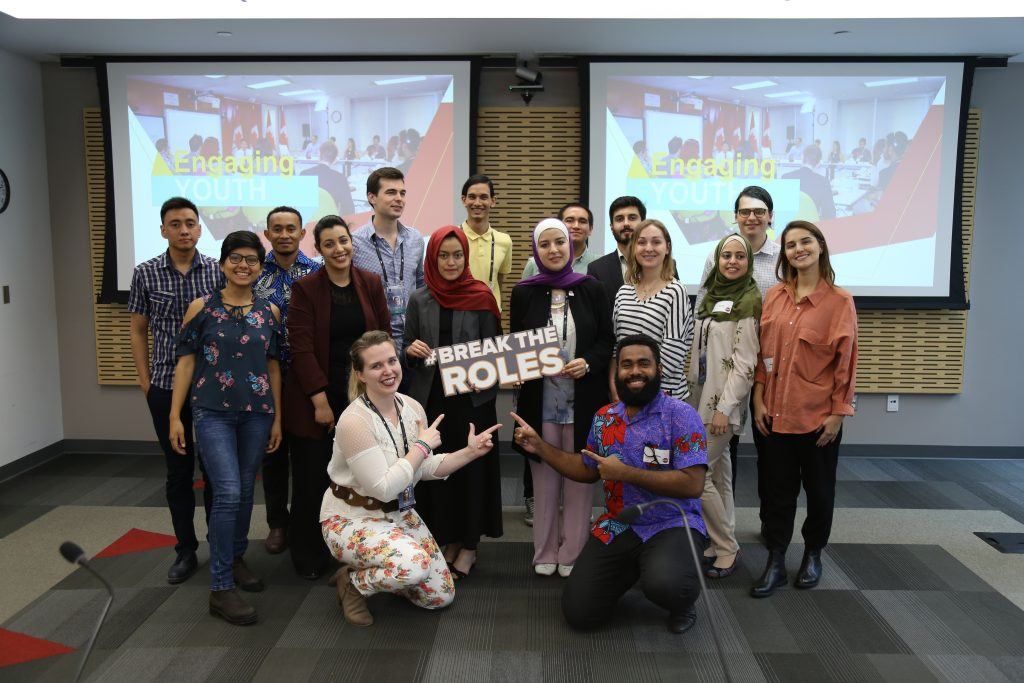
Leave a Reply